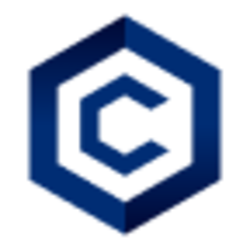Google Cloud Proposes to Enhance Cronos Decentralization and Security Through Strategic Partnership and Validator Role
Contents
-
Google Cloud’s entry as the primary validator on the Cronos blockchain emphasizes the increasing collaboration between tech giants and the cryptocurrency space.
-
This partnership is poised to enhance decentralization and security within the blockchain, showcasing a trend where large firms are engaging more deeply in Web3 technologies.
-
According to Rishi Ramchandani, head of Web3 APAC at Google Cloud, “This cooperation will provide developers with resources to build the next generation of decentralized applications.”
Google Cloud becomes the main validator for the Cronos blockchain, enhancing security and developer resources in the evolving Web3 space.
Google Cloud Strengthens Presence in the Cronos Blockchain Ecosystem
The recent announcement that Google Cloud will act as the primary validator for the Cronos blockchain marks a significant milestone in the adoption of cryptocurrency technologies by established global enterprises. This integration is set to boost both the technical innovation and developer engagement within the ecosystem, further establishing the relevance of Web3 technologies in today’s digital landscape.
The Growing Collective of Blockchain Validators
By joining the ranks of existing validators such as Crypto.com and Blockdaemon, Google Cloud aims to enhance the security and decentralization of the Cronos network. This collaboration includes a pool of 32 validators participating in the Ethereum Virtual Machine (EVM) protocol, crucial for producing and verifying new blocks. The technical expertise brought in by these firms paves the way for a robust infrastructure, significantly contributing to the network’s resilience against potential threats.
Cronos Labs and the Emphasis on Open-Source Development
Cronos Labs has been actively promoting partnerships with contributors and validators who possess advanced technical capabilities. Rishi Ramchandani highlighted that “Google Cloud will collaborate with Cronos to provide developers with the resources they need,” underlining the importance of fostering an ecosystem where open-source innovation can thrive. This partnership is not just a technical alliance but a strategic maneuver to engage more developers in the Web3 space, a step essential for the evolution of decentralized applications.
Implications for Developers and Startups in the Web3 Space
The implications of this strategic move are significant for developers and startups looking to leverage the capabilities of cloud infrastructure. Ken Timsit, managing director at Cronos Labs, emphasized that the integration of Google Cloud’s sophisticated resources will enhance the security and reliability of the overall network. Furthermore, it escalates the appeal of the Cronos Accelerator program, which provides startups with a platform for innovation. This development points towards an encouraging future for new decentralized applications that can utilize advanced AI and data processing tools.
Wider Trends of Corporate Engagement in Web3 Technologies
The shift of major players into the Web3 space is not just limited to technology companies. Luxury brands like Lamborghini and Ferrari, as well as e-commerce giants such as Amazon Web Services, are also exploring Web3 technologies. As noted by Timsit, this trend highlights the enormous potential for open-source development and the innovation landscape surrounding decentralized technologies.
Conclusion
Google Cloud’s involvement as the main validator for the Cronos blockchain signifies a pivotal moment for both the blockchain network and the wider Web3 environment. As large firms continue to engage and innovate within this sector, the potential for enhanced security, developer resources, and groundbreaking applications strengthens immensely. The future of decentralized applications looks promising as collaborations like these pave the way for a more interconnected and secure blockchain ecosystem.
Comments
Other Articles
Bitcoin Price Analysis: Will the Uptrend Continue?
2/8/2026
Ethereum 2.0 Update: How Will It Affect the Crypto Market?
2/7/2026
The Coming of Altcoin Season: Which Coins Will Stand Out?
2/6/2026
DeFi Protocols and Yield Farming Strategies
2/5/2026
